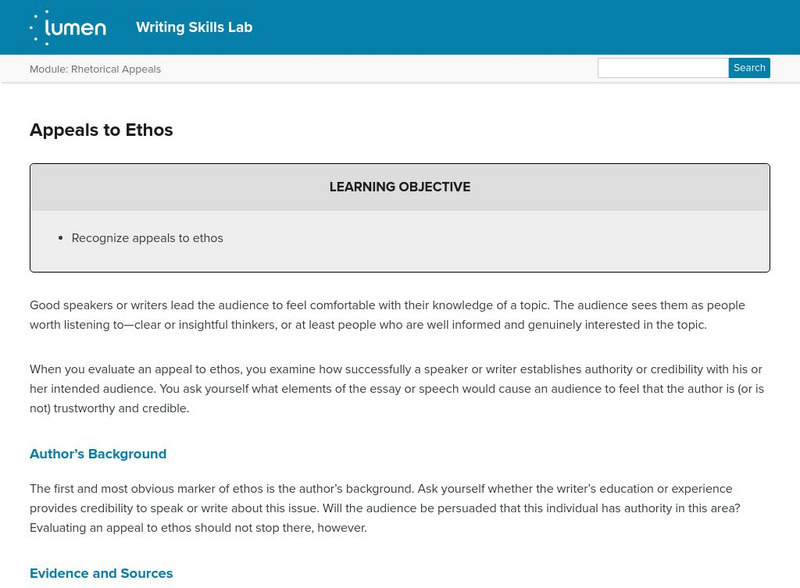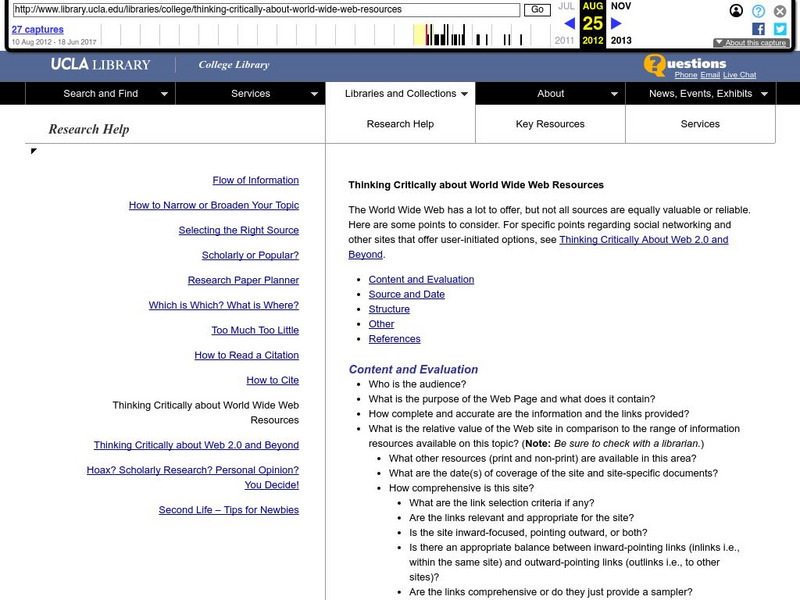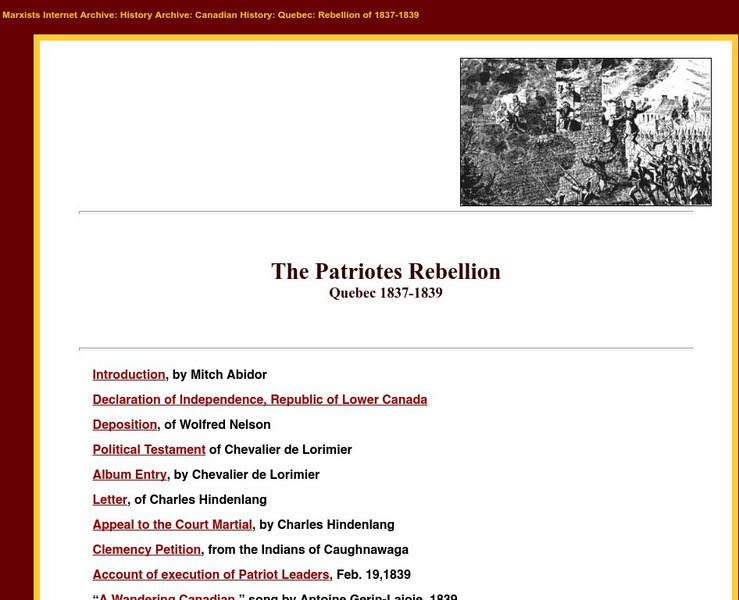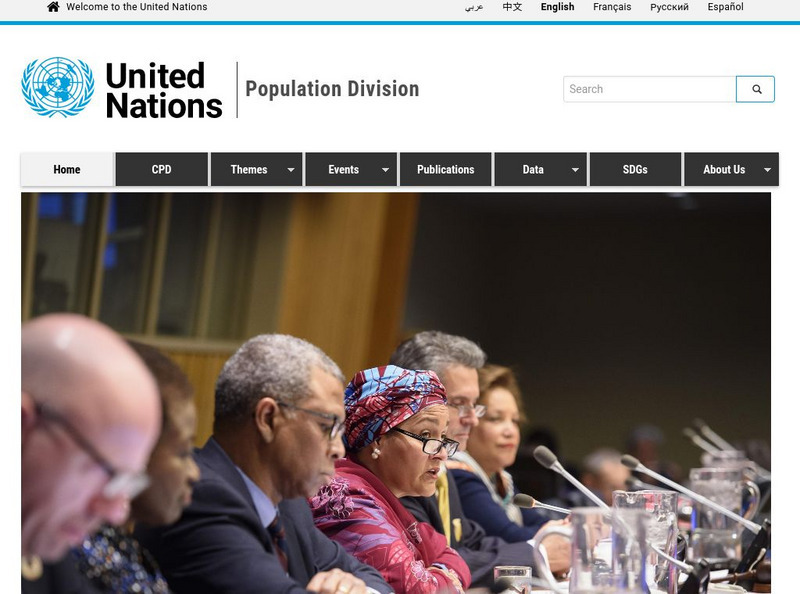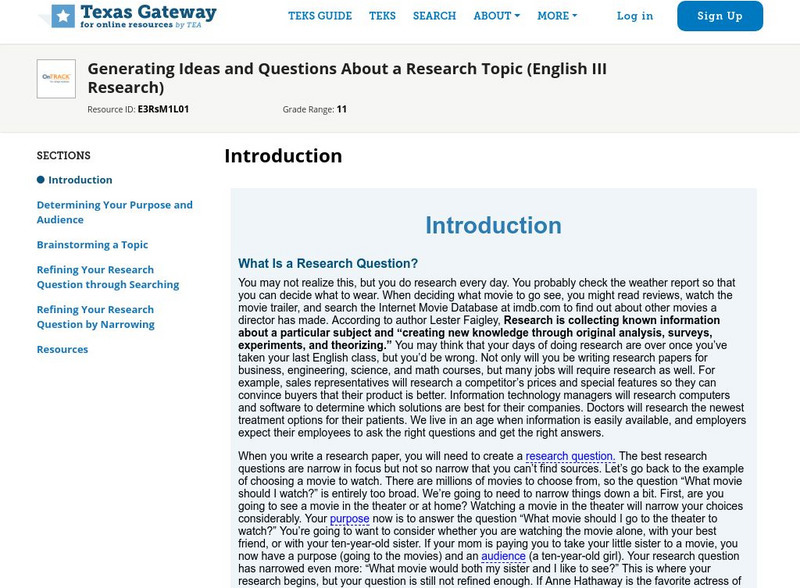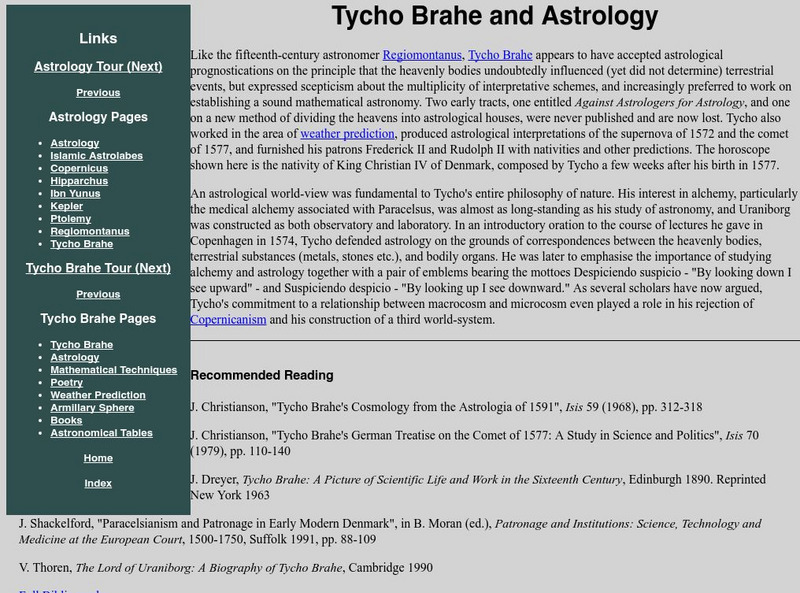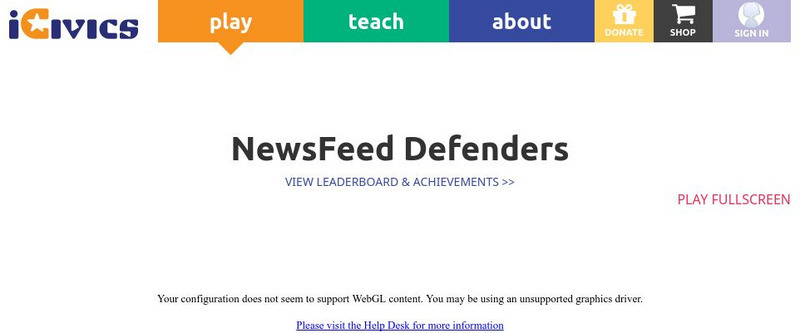Hi, what do you want to do?
International Reading Association
Reading Online: Classroom Strategies for Exploring Authenticity in the Media
Four innovative classroom activities that actively engage students in analyzing and criticizing media messages. SL.11-12.2 Eval&Integrate sources
Lumen Learning
Lumen: Rhetorical Appeals: Establishing Ethos
This lesson focuses on establishing ethos or credibility. You can establish ethos-or credibility-in two basic ways: you can use or build your own credibility on a topic, or you can use credible sources, which, in turn, builds your...
ReadWriteThink
Read Write Think: Hoax/no Hoax? Online Comprehension and Evaluation Strategies
Students use research-based comprehension strategies to read and evaluate websites, and practice analysis by comparing hoax and real websites and by identifying false or misleading information. SL.11-12.2 Eval&Integrate sources
Lumen Learning
Lumen: Rhetorical Appeals: Appeals to Ethos
This lesson focuses on appeals to Ethos, When you evaluate an appeal to ethos, how successfully a speaker or writer establishes authority or credibility with his or her intended audience. You ask yourself what elements of the essay or...
Lumen Learning
Lumen: Boundless Communications: Variations in Language
This lesson focuses on the use of variation in language when preparing a speech including directness, subjectivity and objectivity, abstraction, and accurate, reliable, unbiased, credible, and current sources.
Other
Walt's Navigating the Net Forum: Evaluating Quality
This article helps searchers develop evaluation skills in judging information and helps web content developers increase the credibility of their materials for those looking for quality on the net.
University of Hawai'i
University of Hawaii: Business Editors Ethics Code
The official ethics code of The Society of American Business Editors and Writers provided for by the University of Hawaii.
University of California
Ucla College Library: Thinking Critically About World Wide Web Resources
This site teaches readers how to evaluate the content and quality of web resources, offering questions and checklists to consider.
Marxists Internet Archive
The Patriotes Rebellion Quebec 1837 1839
This addresses class conflicts in Lower Canada by understanding the The Patriotes Rebellion in terms of frustrations with the British Government and their slow response to the 92 Resolutions. It is an interesting read, with related pages...
United Nations
United Nations: Department of Economic and Social Affairs: Population
An excellent source for credible population data. Contains links to the world population data and demographic trends and themes.
Louisiana Department of Education
Louisiana Doe: Louisiana Believes: English Language Arts: Grade 8: Sugar
Eighth graders will explore the impact that sugar production and trade had on the economic and social course of world history, including in Louisiana.
Texas Education Agency
Texas Gateway: Generating Ideas and Questions About a Research Topic
This lesson focuses on creating a research question including determining the purpose and audience, brainstorming a topic, researching the question for information, and refining and narrowing the question. W.9-10.7 Research....
Other
Kathy Schrock's Home Page: Abc's of Website Evaluation [Pdf]
Noted technology educator Kathy Schrock provides an alphabetical list of qualities to evaluate in judging websites. She provides example websites to look at for each quality. In addition, she gives a list of websites to use when...
Media Smarts
Media Smarts: How to Recognize False Content Online: The New 5 Ws [Pdf]
A tip sheet to help both students and adults learn how to test online content for validity.
Other
Media Education Lab: My Pop Studio
[Free Registration/Login Required] Get ready to go behind-the-scenes of the television you watch, magazines you read, music you listen to, and websites you visit! The 'studios' let you.. Create, Comment, Control. Targeted at girls, the...
PBS
Pbs Learning Media: Common Sense Education: Identifying High Quality Sites
Learn how to "test before you trust" the sites and information found on the Web in this lesson plan and student handout from Common Sense Education. Assessing what you find on the Web is an essential skill for today's learners. Use this...
PBS
Pbs Learning Media: Virtual Professional Learning Series
Our Virtual Professional Learning Series is created for teachers-by teachers-to bring together content experts and educators from all backgrounds. With an emphasis on fun, engaging, accessible, and free tools for classrooms, these...
Other
U of Cambridge: Tycho Brahe and the Separation of Astronomy From Astrology
The subject of the paper is the shift from an astrology-oriented astronomy towards an allegedly more objective, mathematically grounded approach to astronomy. This shift is illustrated through a close reading of Tycho Brahe's scientific...
Sophia Learning
Sophia: Research Questions: A Focus for Planning, Researching, and Writing
This Sophia video lesson introduces how to develop good questions for a research paper. CCSS.ELA-Literacy.CCRA.W.8; CCSS.ELA-Literacy.WHST.6-8.7 Conduct short research projects. CCSS.ELA-Literacy.WHST.6-8.7 standards are addressed in...
Other
Scholarly Resources: What's the Difference?
This succinct explanation shows you what the difference is between a scholarly and a popular periodical or other resource.
Indiana University
Indiana University: Plagiarism: What It Is and How to Recognize and Avoid It
A guide for the student to understand what plagiarism is and how to avoid it in their work.
Other
Prism Magazine: Student Plagiarism in an Online World
Prism Magazine offers an essay on student plagiarism and how to track down if the paper is plagiarized.
Information Fluency
Illinois Mathematics and Science Academy: Micromodules: Author
Tutorial explaining the importance of determining the authorship as one of the criteria to evaluating a website. Following the article is a post-test to assess your understanding of the material. The 21st Century Information Fluency...
iCivics
I Civics: News Feed Defenders
NewsFeed Defenders is a challenging game designed to sharpen students' news literacy skills. Students will join a fictional social media site focused on news and information. They will learn elements of high-quality journalism to be able...
Other popular searches
- Credibility Source
- Internet Source Credibility
- Article Source Credibility
- Evaluating Source Credibility








